#mercy otis warren
Explore tagged Tumblr posts
Text
Women in History

If you were to open a history book right now, you would not read about a woman's accomplishments during the founding of the New World until several chapters in, and even then, she would be in the shadow of a man. Women were very active in our history and made a significant change. It is not your fault you never knew this. Blame the journalists at the time and our education system! Here are a few women who made a significant impact on American history. 🌷

Mercy Otis Warren was a well-known American poet and playwright during the American Revolution. Mercy was born on September 1728 in Barnstable, Massachusetts. Her father was an attorney elected to the Massachusetts legislature in 1745, exposing Mercy to politics at a young age. She was not given a proper education like all the girls of this time, but she learned from her brother and was particularly fond of history and politics. In 1754, Mercy married her brother's classmate from Harvard, James Warren, who was politically active and encouraged her to pursue writing. Mrs. Warren began writing political dramas anonymously that denounced British policies and offices in Massachusetts. From the outset of the American Revolution, Warren started to write its history, which was published in 1805 as History of the Rise, Progress and Termination of the American Revolution. This was among the first nonfiction books published by a woman in America, and she was the third woman (after Anne Bradstreet and Phillis Wheatley) to publish a book of poems. She was against women's lack of education and was an activist.

Elizabeth Ellet was born in October 1812 in Sodus, New York. She attended the Female Seminary in Aurora, New York. She was fond of writing and reading. She translated books and published them anonymously and began publishing poems anonymously. It is estimated that she married her husband, William H. Ellet, in 1835. In 1848, she published her most known work, "Women of the American Revolution," in multiple volumes. This work contained the lives of women who played key roles in the events of the Revolution. Elizabeth's work was a crucial part of history because she documented work that was being neglected by many others.

In Massachusetts, on November 22, 1744, Abigail Adams was born into a prestigious family. Like every other woman, Abigail did not have a formal education, but she taught herself from her family's library while joining her mother to tend to the poor and sick. In 1764, Abigail married John Adams, a Harvard law graduate. Her husband traveled often as a lawyer, political revolutionary, and—after the Revolution—a diplomat. Abigail managed their farm and business affairs while raising the children. Although married women had limited property rights at this time, Adams began to refer to their property as hers. She also made investment decisions that enhanced the family's prosperity. 1776, as her husband participated in the First Continental Congress in Philadelphia, Adams wrote her most famous letter that the Founding Fathers "remember the ladies." She added, "Do not put such unlimited power into the hands of the husbands. Remember, all men would be tyrants if they could." Abigail began fighting for women to get an education like men. She allied with Judith Sargent Murray's efforts to expand women's education. Although Abigil's husband did not take her worldview or letters seriously, she would travel with him through Europe for five years during his term as a diplomat. In 1800, the Adams family was the first to occupy the White House after the capital moved from Philadelphia to Washington, D.C. In 1801, when her husband lost the re-election, Abigail maintained correspondence with political leaders like President Thomas Jefferson. Abigail also worked for the political advancement of her son, John Quincy Adams, though she would not live to see his election as president in 1824.
Thus, women have been in the shadow of men since the dawn of time. Women have made significant history, yet we have not made them a household name. Womens' lasting impact on history should be a key factor in learning history.
credits to @dollywons for the header 🦌
#america#politics#fashion#blog#girl blogger#women#women history month#history#culture#modern history#world history#abigail adams#john adams#usa politics#american politics#political#uspol#us government#Elizabeth ellet#mercy otis warren#lana del rey#lana del ray aka lizzy grant#lana del ray aesthetic#girlblogger#girlhood#lizzy grant#sophia coppola#government#trump#tariffs
3 notes
·
View notes
Text
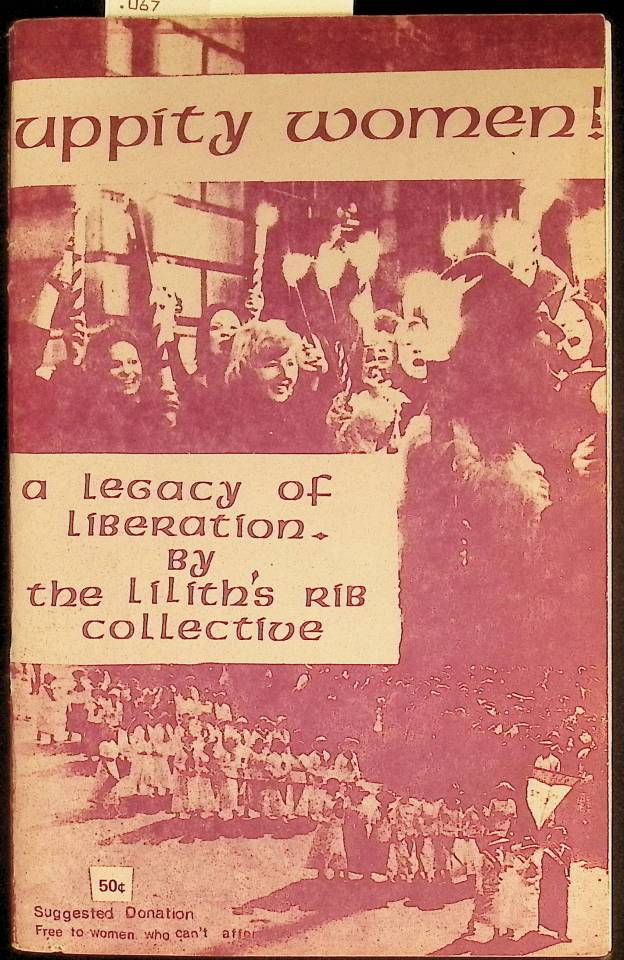
Uppity Women: A Legacy of Liberation (1974) by the Lilith's Rib Collective at Hunter College
From the introduction:
We are a group of women students at Hunter College who are working for the implementation of a Women's Studies Department at Hunter. Given an enrollment that is 73% women and a long background as a women's college, we feel that it is time for us to learn about our HERitage and with this goal in mind we are working both politically and educationally. We have chosen to name ourselves after Lilith. She was first mentioned in Assyrian myths as a wind spirit and later played a major part in early Hebraic lore. She is mentioned in the Alphabet Ben Sira as the first woman, created simultaneously with Adam. Being thus created, Lilith refused to accept Adam's claim of supremacy and left him, after refusing to lie beneath him during intercourse. She went to live by the Red Sea. We have chosen her as a symbolic starting point to our heritage. Our motivation to write this book comes out of our own experiences as women. It is an effort to connect with a rich past that has been denied us. Our purpose is to briefly introduce you to some of these women whose lives have been lost to us and who were the Foremothers of our Woman's Culture. We hope that this will encourage you to rediscover Women's history and to participate in the struggle that lies ahead. In Sisterhood, The Lilith's Rib Collective
It includes biographies of Susan B. Anthony, Mary McLeod Bethune, Marie Sklodowska Curie, Isadora Duncan, Amelia Earhart, Emma Goldman, the Grimké Sisters, Anne Hutchinson, Mother Jones, Maria Mitchell, Esther Hubart Morris, Emmeline Goulden Pankhurst, Sacajewa, Margaret Higgins Sanger, Gertrude Stein, Lucy Stone, Sojourner Truth, Harriet Ross Tubman, Mercy Otis Warren, and Victoria Woodhill.
The Browne Popular Culture Library (BPCL), founded in 1969, is the most comprehensive archive of its kind in the United States. Our focus and mission is to acquire and preserve research materials on American Popular Culture (post 1876) for curricular and research use. Visit our website at https://www.bgsu.edu/library/pcl.html.
#bgsu#libraries on tumblr#women's history month#uppity women#lilith's rib collective#hunter college#Susan B. Anthony#Mary McLeod Bethune#Marie Sklodowska Curie#Isadora Duncan#Amelia Earhart#Emma Goldman#the Grimké Sisters#Anne Hutchinson#Mother Jones#Maria Mitchell#Esther Hubart Morris#Emmeline Goulden Pankhurst#Sacajewa#Margaret Higgins Sanger#Gertrude Stein#Lucy Stone#Sojourner Truth#Harriet Tubman#Mercy Otis Warren#and Victoria Woodhill#marie curie
19 notes
·
View notes
Photo
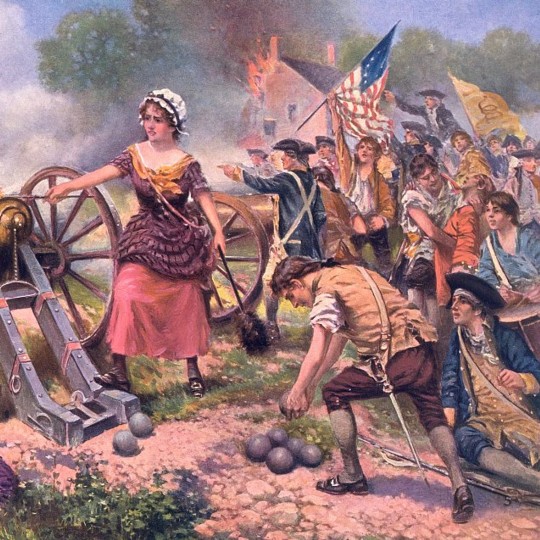
Women in the American Revolution
In Colonial America, women were discouraged from taking an interest in politics and were instead expected to focus only on traditionally 'feminine' matters, such as homemaking and childrearing. However, such gender roles were challenged during the American Revolution (1765-1789), when women played a crucial role in achieving the independence of the United States.
From the very first signs of tension between the Thirteen Colonies and Great Britain, colonial women discovered their political voice. Women were the driving force behind boycotts of British imports, shunning British tea in favor of local herbal substitutes, and holding spinning bees to reduce dependence on British cloth. Female writers, such as Mercy Otis Warren and Phillis Wheatley, helped turn public opinion against British rule, while hundreds of women accompanied the Continental Army to perform essential duties like washing, nursing, and cooking; some women, like Margaret Corbin, Mary Ludwig Hays, and Deborah Sampson, even took up arms and fought against the British. Although women were not viewed as politically equal to men after the war, their involvement proved to be a vital first step in the long struggle for women's rights in the United States.
Role of Women in Colonial America
In October 1608, the 'second supply' of English settlers arrived at the Jamestown Colony of Virginia to supplement the population of original settlers. Among these new arrivals was Thomas Forrest, a gentleman financier, who was accompanied by his wife, a woman listed in the ship's manifest only as 'Mistress Forrest', and her maid, Anne Burras. Mistress Forrest and Anne Burras were the first two English women to settle in Jamestown; Burras would marry later that year and earn the additional distinction of becoming the first English woman to give birth in Virginia. English women continued to sporadically arrive in Jamestown over the course of the next decade until 1619 when the Virginia Company decided to send large groups of women to foster a self-sustaining population. In 1620, 90 single women, many of them from poor families, arrived in Virginia as the first of the so-called Jamestown brides, or 'tobacco brides'. They were married off to Jamestown's male settlers, each of whom paid the Virginia Company a dowry of 120-150 pounds of tobacco. Additional groups of Jamestown brides continued to arrive in the following years.
Faced with this growing population of women, the colonists of Jamestown implemented a gender hierarchy similar to that which existed in England. This revolved around the doctrine of coverture, which stipulated that once a woman was married, she was under the complete authority of her husband and no longer enjoyed an independent legal status. A married woman, or feme covert, was legally considered to be one with her husband; she could no longer own property or sign contracts, and any money she earned belonged to her husband. Once a woman married, she was usually confined to the role of homemaker, devoting her hours to cleaning, cooking, ironing, sewing, and gardening. Divorce was difficult to obtain and was often only permissible if a pre-existing condition rendered the initial marriage invalid. As a result, many colonial women felt anxiety about marriage, with one woman referring to marriage as a 'dark leap' from the familiarity of her parents' house into an unknown future controlled by a man whose personality she may have misjudged (Norton, 42). Still, married life was more desirable than remaining a single woman – or feme sole – for too long, as spinsters were often placed near the bottom of the social hierarchy.
Of course, the status of colonial women varied from colony to colony, and widely depended on social class. Wealthy women, for instance, were usually better educated than lower-class women, as were women from Puritan New England who were often taught how to read in order to study the Bible. But, by and large, women were expected to remain within the 'feminine sphere' and to display only feminine traits such as modesty, cheerfulness, patience, and chastity. They were discouraged from expressing any interest in subjects that were considered masculine, particularly politics; attempts by colonial women to involve themselves in politics were met with punishment, as was the case with Anne Hutchinson, who was banished from Massachusetts in 1637 after challenging the authority of male religious leaders. But, as historian Mary Beth Norton points out, the advent of the American Revolution lent colonial women a political voice for the first time, helping to spark the slow progression of women's rights in the US.
Continue reading...
26 notes
·
View notes
Text
youtube
Politics below the cut.
"There is no real choice this November. There is only the perpetuation, however flawed and feeble you might perceive it, of our fragile 249-year-old experiment or the entropy that will engulf and destroy us if we take the other route. When, as Mercy Otis Warren would say, "The checks of conscience are thrown aside and a deformed picture of the soul is revealed." The presumptive Republican nominee is the opioid of all opioids, an easy cure for what some believe is the solution to our myriad pains and problems. When in fact with him, you end up re-enslaved with an even bigger problem, a worse affliction and addiction, "a bigger delusion", James Baldwin would say, the author and finisher of our national existence, our national suicide as Mr. Lincoln prophesies. Do not be seduced by easy equalization. There is nothing equal about this equation. We are at an existential crossroads in our political and civic lives. This is a choice that could not be clearer."
That's from a commencement address Ken Burns gave at Brandeis University back in May. I hadn't read it until it was discussed briefly at the start of Burns's appearance on MSNBC, before Burns gets into specifically why he thinks Trumpism and the Trump campaign is so unprecedented. They keep coming back to that word, and with good reason.
There's just something about listening to people of substance who have taken the time to reflect on some issue, talk about it specifically and bring their own context to it. It does this philosopher's soul good, I think, just because there's a pause where I'm allowed to be still, focus on one thing, and feel more intellectual depth. Not that most people around here need to be convinced Trump is dangerous, but if you need intellectual space right now, reading his commencement address or listening to this exchange might be helpful. It was for me.
2 notes
·
View notes
Text
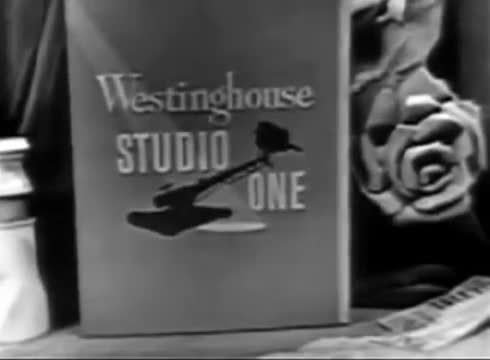


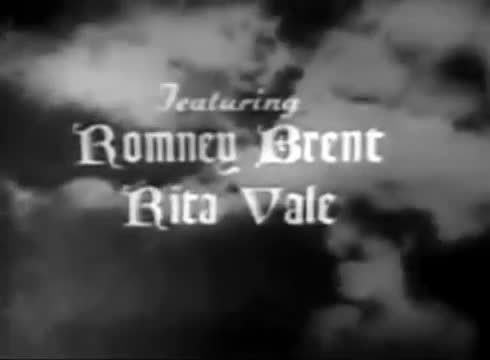
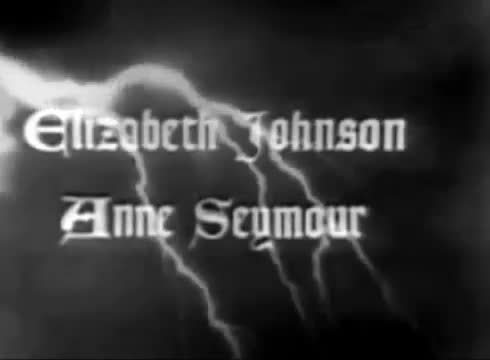
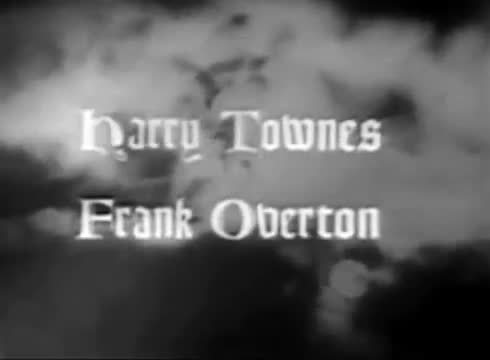
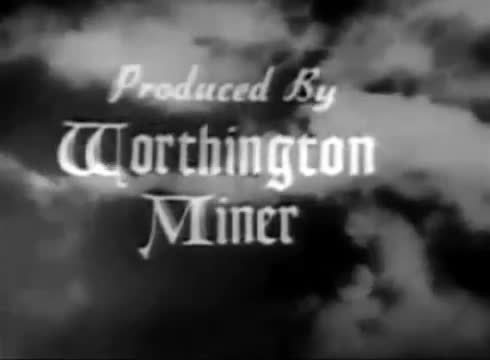

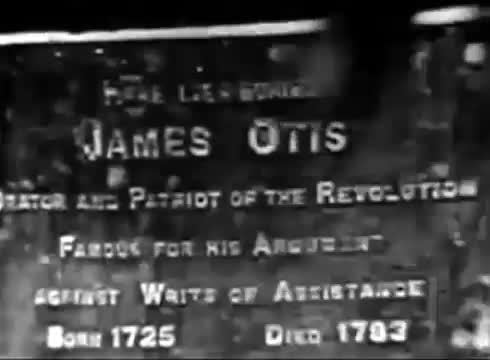
From the Golden Age of Television
A Bolt of Lightning - CBS - November 12, 1951
A presentation of "Westinghouse Studio One" Season 4 Episode 9
Drama
Running Time: 60 minutes
Stars:
Charlton Heston as James Otis Jr.
Romney Brent as Governor Bernard
Rita Vale as Ruth Otis
Elizabeth Johnson as Mary Otis
Anne Seymour as Mercy Otis Warren
Harry Townes as Samuel Adams
Frank Overton as John Emory
Rudolph Justice Watson as Peter
Harry M. Cooke as William Wooley
George Ives as Mr. Robinson
Roy Johnson as Mr. Williams
Rita Morley as Emma Emroy
Marvyn Dorkin as Doctor
Lloyd Bochner as Prescott
Shirley Ballard as Elizabeth Otis
Jon Lormer as Mr. Huntington
Robert Baine as Judge
#A Bolt of Lightning#TV#CBS#1951#1950's#Westinghouse Studio One#Drama#Charlton Heston#Romney Brent#Rita Vale#Elizabeth Johnson#Anne Seymour#Harry Townes#Frank Overton
2 notes
·
View notes
Note
who is the hottest founding father and who is the ugliest and also are there any founding fathers that are girls (i’m looking to get into amrev 🥺🥺🥺)
george washington hottest no questions asked. jefferson and hamilton were pretty fine too tho ...
john adams was probably one of the uglier founding fathers (hes obnoxious and disliked [1776 reference]) DURING the revolutionary war but aaron burr hands down was the ugliest afterwards (he had a couple strokes and ended up looking very ...... interesting ..)
as for founding mothers i havent read much on women at the time yet BUT a few names that like. are sticking to me rn are abagail adams (john adams' wife, i think she was known for supporting women's education + was anti slavery) and mercy otis warren (i believe she wrote plays that worked as propaganda to unite america against the british + she published a lot of the first history of the amrev in the early 1800s)!!
getting into amrev is one of the best things you can do its so awesome sauce fr. id recommend reading books on it + reading letters from that time is also super silly😋😋
5 notes
·
View notes
Text

Oil Painting, ca. 1763, American.
By John Singleton Copley.
Portraying Mary Otis Warren in a Blue Dress.
MFA Boston.
#oil painting#painting#Mary Otis Warren#mfa boston#John singleton Copley#blue#dress#american#usa#18th century#1763#1760s#1760s usa#1760s painting
8 notes
·
View notes
Text

“America has fought for the boon of liberty…Guard it on every side that it might not be sported away by the folly of the people or the intrigue or deception of their rulers." – Mercy Otis Warren
2 notes
·
View notes
Text
MERCY OTIS WARREN // ACTIVIST
“She was an American activist, poet, playwright, and pamphleteer during the American Revolution. During the years before the Revolution, she had published poems and plays that attacked royal authority in Massachusetts and urged colonists to resist British infringements on colonial rights and liberties. She was married to James Warren, who was likewise heavily active in the independence movement.”

1 note
·
View note
Text

Check out our latest USA TODAY Newspaper! Featuring some of our AMAZING authors. Will be released on September 01-03, 2023.
Featuring WILLIAM CIBBARELLI, author of The Quality of Mercy: A Revolutionary Lady's Tale.
Uncover the incredible story of Mercy Otis Warren, a key player in the American Revolution and “Mother of the Bill of Rights” in this unique blend of fact and fiction by a retired Marine and history expert.
#USAToday
0 notes
Video
This was a great speech by Ken Burns! A full transcript of the speech can be found here:
Below are a few choice excerpts from the speech:
Othering is the simplistic binary way to make and identify enemies, but it is also the surest way to your own self imprisonment, which brings me to a moment I've dreaded and forces me to suspend my longstanding attempt at neutrality. There is no real choice this November. There is only the perpetuation, however flawed and feeble you might perceive it, of our fragile 249-year-old experiment or the entropy that will engulf and destroy us if we take the other route. When, as Mercy Otis Warren would say, "The checks of conscience are thrown aside and a deformed picture of the soul is revealed." The presumptive Republican nominee is the opioid of all opioids, an easy cure for what some believe is the solution to our myriad pains and problems. When in fact with him, you end up re-enslaved with an even bigger problem, a worse affliction and addiction, "a bigger delusion", James Baldwin would say, the author and finisher of our national existence, our national suicide as Mr. Lincoln prophesies. Do not be seduced by easy equalization. There is nothing equal about this equation. We are at an existential crossroads in our political and civic lives. This is a choice that could not be clearer. [Audience applauding] [...] Convince your government, as Lincoln understood that the real threat always and still comes from within this favored land. Insist that we support science and the arts, especially the arts. [Audience cheering] They have nothing to do with the actual defense of our country; They just make our country worth defending. [Audience applauding] Remember what Louis Brandeis said, "The most important political office is that of the private citizen." Vote. You indelibly... [audience applauding] Please, vote. You indelibly underscore your citizenship, and most important, our kinship with each other when you do. Good luck and godspeed. [Audience applauding]
youtube
Ken Burns, H’24 Keynote Address to Brandeis University’s 2024 Graduates
Ken Burns, H’24 delivered the keynote address to the 2024 undergraduate class during the 73rd Commencement Exercises.
#ken burns#brandeis university commencement speech#2024 election#donald trump#joe biden#there is a clear choice between continuing our democratic republic or destroying it#video#transcript
80 notes
·
View notes
Photo

Mercy Otis Warren
Mercy Otis Warren (1728-1814) was an American poet, playwright, and activist during the era of the American Revolution (1765-1789). Through her works of political satire, she advocated for the Patriot cause and became acquainted with several revolutionary leaders. In 1805, she published a three-volume comprehensive history of the revolution, considered to be her magnum opus.
A self-educated woman, Warren became a staunch Patriot during the American Revolution, writing three plays and two works of dramatic prose in support of American rights and liberties. Although these works were published anonymously, she still won the attention of many Patriot leaders, whom she often hosted at her Plymouth home. After the United States won its independence, Warren criticized the US Constitution, fearful that it would lead to an oppressive federal government, and denounced the Federalist Party, whom she accused of having betrayed the principles of the Revolution in exchange for power. Her History of the Rise, Progress, and Termination of the American Revolution was an important historical work that won her both acclaim and derision.
Early Life
Mercy Otis was born on 25 September 1728 in Barnstable, Massachusetts. She was the third of 13 children born to James Otis Sr. (1702-1778) and his wife Mary Allyne Otis (1702-1774). Her father was a prosperous attorney and politician who won election to the Massachusetts House of Representatives in 1745, and her mother was a member of an old Massachusetts family, descended from a Mayflower passenger. As a young girl, Mercy Otis dutifully learned the domestic skills that women were expected to know in 18th-century America, such as cooking, sewing, and needlework. But Mercy's ambition and her appetite for knowledge caused her to look beyond the limits of gender roles. When her two elder brothers, James Jr. and Joseph, were sent to the home of Reverend Jonathan Russell to be tutored, Mercy accompanied them, sitting in on their lessons. Mercy was thereby educated in the topics of classical literature and history and was given access to Reverend Russell's extensive library to study other fields. It was unusual for a girl to be given such a broad education in colonial America, but Mercy's academic endeavors seem to have been supported by her father and brothers.
Despite her accumulated wealth of knowledge, Mercy Otis' gender precluded her from being admitted into Harvard, the college that both her elder brothers ultimately attended. Still, she celebrated when James Jr. graduated in 1743; his commencement ceremony at Cambridge may have marked the first time Mercy set foot off Cape Cod. It may also have been the occasion when she first met James Warren, a first-year student at Harvard and a friend of her brother's. Through his friendship with James Otis Jr. and his business dealings with their father, James Warren spent a lot of time with the Otis family over the next several years and became particularly close with Mercy. On 14 November 1754, Mercy married James Warren and moved with him to Plymouth, Massachusetts, where she would live for the rest of her life. By all accounts, theirs was a happy marriage; they rarely argued, and James encouraged Mercy's literary and writing interests, referring to her affectionately as the 'scribbler'. When James' father died, the couple moved onto the Warren family estate of Clifford Farm, where Mercy gave birth to five healthy sons between 1757 and 1766. It was during her second pregnancy in 1759 that Mercy wrote her first known poems.
Continue reading...
20 notes
·
View notes
Text
Mercy’s favorite books:
- Sir Walter Raleigh’s History of the World. Her brother James introduced this one to her on a visit home from Harvard.
- Moliere’s play Tartuffe; she enjoyed social satire quite a bit!
- Shakespeare’s histories, although she admired his other plays as well, and drew inspiration from Shakespeare’s dramatic style in her later work as a playwright, aa did numerous other eighteenth-century authors.
- Other sundry unspecifieds from a Britannica article that made me cry
2 notes
·
View notes
Text
i totally forgot mercy otis warren was james otis' sister tbh
ch 2/skimming notes from "sons of the fathers: the civil religion of the american revolution" by catherine l albanese. #toastblock for spam
14 notes
·
View notes
Photo

Mercy Otis Warren
1 note
·
View note
Photo

Mercy Otis Warren (1728-1814) was a political writer and historian during the American Revolution. She advocated for the inclusion of a Bill of Rights along with the US Constitution, and published several collections of plays and poems, unusually for a woman at the time.
She was a correspondent and advisor of numerous political figures and leaders, such as Thomas Jefferson and George Washington. Her History of the Rise, Progress, and Termination of the American Revolution, published in 1805, is a comprehensive account of the period, and the first ever published by a woman.
#born on this day#amazing women#mercy otis warren#politics#history#women in politics#women in history#feminism#feminist
204 notes
·
View notes